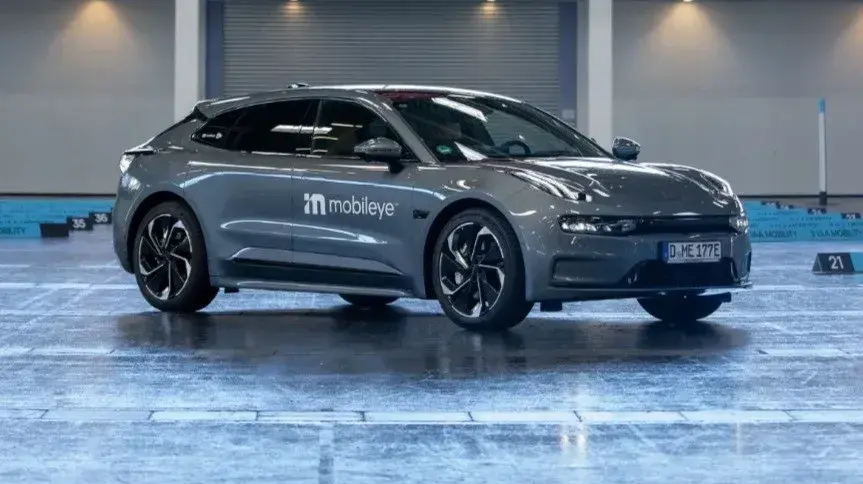Zikr 001 Mobilay Autonomous Vehicle Munich/Mobilay
Modern cars collect a lot of information from the vehicle systems, which is monitored every time they arrive at the garage: malfunctions, fakes, worn parts.
But vigilant customers of the new Chinese luxury brand Zikr, which was launched in Israel last month by the importer Gio Mobility, discovered that they were required to approve in the purchase agreement the collection of information on a much more intrusive scale.
One of them who turned to Walla Car, wondered: "Can Chinese government officials get information about me from the car?"
The relevant section of the purchase agreement states that "systems are installed in the vehicle which, among other things, may monitor, save and transmit to the manufacturer's systems various data, including personal information about the vehicle, the vehicle owner, and the users or passengers of the vehicle, such as, but not limited to, the vehicle's chassis number, data on the condition The vehicle, the performance of the vehicle, the use of the vehicle, the behavior of driving the vehicle, the location of the vehicle, the speed of travel, charging data, maintenance, breakdowns and repairs.
But the list continues here for more personal data: "Voice recognition, facial recognition".
If collecting technical data can also be reasonable for the purpose of identifying faults in the vehicle and learning the performance of the vehicle in real life, for the purpose of future improvement of charging capabilities and early detection of serial faults, even if it is appropriate for the vehicle owner to be financially rewarded for providing the information in his vehicle for the benefit of the manufacturer, which is not happening here, no It is clear why the vehicle collects facial images and voice samples of the driver.
Zikar even expands and clarifies: "The data may be transferred by the manufacturer to third parties, including the importer, and they will be allowed to use the data, in accordance with the manufacturer's privacy policy for vehicle connectivity and subject to the law."
The first two Zikr models sold in Israel, X and 001/Zikr
The company also assigns the vehicle owner the responsibility of informing everyone who may drive the vehicle, and those who will purchase it from him in the future, about the collection of information.
"It is the customer's responsibility to inform any other person authorized by him to use the vehicle or any third party to whom ownership or possession of the vehicle will be transferred, about the vehicle's connectivity," and there it repeats the policy of transferring data to third parties.
An official at Zikr Israel said in a conversation with Walla Car that "the Chinese government is not included in the privacy policy that deals with third parties and the servers that store the Israeli users' data are not located in China. The Chinese government has no right to access the users' personal information. The user's personal information is protected by data protection laws personal around the world, including in China."
Geo Mobility responded that "the term 'third party' in the privacy policy refers to technical providers and partners outside Zikr. For example, providers such as the German Cerence, which provides voice functionality. Voice data is collected when using the voice assistant feature, where Cerence has to perform a semantic analysis on the user's voices. The in-car system collects the user's voice data to recognize commands and perform appropriate actions. However, the functionality of the voice assistant is activated only when the user explicitly requests it, which ensures that the recognition of the user's voice commands is only done with the user's first intention."
"Internal information is captured through the camera above the steering wheel during login to the vehicle account, but users have the choice to cancel this. The facial data is processed locally in the vehicle and not uploaded to the cloud. Zikar does not collect or share users' facial data with third parties."
Ziker also says that the driver can cancel the collection of information by selecting full privacy mode in the vehicle, through the settings on the multimedia screen and operating the vehicle, which will result in disabling certain capabilities:
"In full privacy mode, no data is uploaded to the cloud, with the exception of data related to the software updates requested by the user activate and functions that the law requires to be activated, such as emergency calls. All other data is processed in the vehicle locally, and Zikr does not collect personal information of users. In this situation, these functions will not work: connectivity to the car, maps with traffic, voice assistant and the Zikr app, which is planned for later this year."
This is how the Germans took over the design of the Chinese cars
Stefan Wilf, the designer of the Zikker, in an exclusive interview
More on the same topic:
electric car

